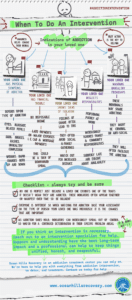If you suspect that a loved one is going through an addiction to drugs or alcohol, taking fast action is the key to saving your loved one from the threat that has already destroyed countless lives. One of the hardest parts of helping a friend or family member is convincing her that she has a problem and needs help, and many people stay in denial. Getting the entire family together to do an intervention can work wonders to overcome that problem and show your loved one how much you care. When you want to know what path you should take, learn the top signs that you need to do an intervention.
Your Loved One Has Physical Symptoms of Addiction
The physical symptoms are often the first thing you will notice when your loved one is falling into the trap of addiction. The symptoms you will spot depend on the substance to which she is addicted. Depending on the situation, your loved one could have bloodshot eyes or dilated pupils, but you must also look for sudden changes in weight.
Since those who use drugs will often inject them into their bodies, try to discover whether or not your loved one has strange bruises or infections he can’t explain. Rather than using only one of these symptoms, look for several and compare them to your knowledge of how your loved one normally appears.
Continued after image…

Your Loved One Has Financial Trouble
Though many people are able to put on a good face while struggling with addiction, when addiction sets in and starts to take its toll, many victims will find themselves facing financial trouble. They will spend more of their money on drugs or alcohol than on the things they need, such as food, shelter or gas.
Addicts often lose their homes and cars because they spend most of their money on their next drink or dose, creating a downward spiral. If you notice this sign in the early stages, you still have a chance to help your loved one before the addiction causes too much damage. Never waste time when someone you love overlooks financial obligations in favor of a reckless lifestyle.
Your Loved One Neglects Responsibilities
A lot of people can manage their daily obligations in the early stages of addiction, but keeping up gets much harder as the problem progresses. Your loved one might miss work or be late picking her children up from school when addiction takes control. If your loved one always used to be on time but now makes a habit of being late, he could have a serious issue that he needs to address, and intervention can help. You must also remember that nobody is perfect, so overlooking an obligation or two on occasion is not a reason to worry. You should do something when the problem persists over time with no signs of improvement.
Your Loved One Shows Signs of Isolation
Once people notice they have a problem with addiction, it’s often too late for them to fix it on their own. Many of them look back and see the damage they have done and feel bad for neglecting and using their friends and family, which is when shame comes into play. If your loved one is at this stage of addiction, she could try to isolate herself from you and everyone else. You should be concerned if your loved one was once social but now stays away from friends and family. Your loved one will already feel embarrassed and want to hide the problem, so use caution when you move forward.
Your Loved One Maintains Unhealthy Friendships
When people first fall into addiction and don’t know where they can go, they often maintain unhealthy friendships. The people with whom they associate might have criminal ties that expose your loved one to even more legal problems. These friends will make it a lot harder for your loved one to escape from the trap and get his life back on track, and you don’t want to ignore this red flag. Trying to force your loved one to eliminate harmful friendships won’t always work, but you can enjoy much better results by being supportive.
Getting Started
If you need a treatment center on which you and your loved one can depend, we are ready to give you a hand. We will get to know your loved one so that we can find a solution that matches her unique situation and needs. If you would like to learn more about doing an intervention or are ready to get your loved one the help he needs, reach out to our rehab center right away.













